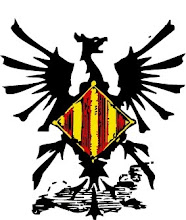Aquest article és genial!
October 23, 2003
If You're Getting Tired Of Fighting Viruses, Consider a New Mac
By WALTER S. MOSSBERG
For consumers and small businesses, the burden of using Microsoft Windows just keeps getting heavier. After growing easier to use for several years, Windows PCs have taken a giant step backward because they are so insecure.
Windows is riddled with security flaws, and new ones turn up regularly. It is increasingly susceptible to all kinds of viruses, malicious Trojan horse programs and spyware. As a result, Windows users have been forced to spend more of their time and money supporting their computers.
Almost every week, they are supposed to install patches to the already patchy operating system to plug these security holes. And every few months, it seems, Windows users must quake in fear as some horrible new virus is created by the international criminal class that constantly targets Windows.
But for consumers and small businesses, there's a simple way out of this endless morass: Buy an Apple Macintosh computer. There are no viruses on the Macintosh's excellent two-year-old operating system, called OS X. And the Mac is a terrific computer -- as good as, or better than, Windows for the typical computing tasks important to mainstream users.
It isn't impossible to write a virus for the Mac. The system isn't impenetrable. Mac users should still use antivirus software. But any virus or security problem that does emerge on the Mac is likely to be much less serious than the Windows security crisis. "Mac OS X hasn't had any viruses since the OS was launched," says Bill Rosenkrantz, the head of Macintosh products at Symantec, the big antivirus firm. "It's more difficult to attack the Apple system than Windows."
Microsoft is working hard on its security problems. The software giant has declared that better security is its No. 1 priority and is mounting an effort to modify Windows XP, via an upgrade due in the spring, to make it more secure. In fact, the upgrade, called Service Pack 2, is so important to the company that it has temporarily taken priority over the next major version of Windows, code-named "Longhorn," which now isn't likely to ship before 2006.
So, if you're a Windows user, you could sit tight, apply all the patches, worry about all the viruses and hope that the spring's Service Pack will solve most of the security problems without breaking other key features of Windows or interfering with programs you use.
Or, if the security issues are important to you, you could just buy a Mac when you shop for your next computer.
Here's why the Mac is so much less susceptible to viruses:
First, the Mac OS X operating system is built on Unix, an industrial-strength operating system used in business, science and education. And OS X doesn't enable users -- or hackers who hijack user accounts -- to alter certain core files and features of its Unix underpinnings. By contrast, Windows XP users are given "full administrator" privileges that viruses and hackers can usurp to do damage.
Also, Apple ships every Mac with all the communications "ports," or conduits that listen for commands over networks, closed. On Windows, some of these ports are left open.
In addition, Macs constitute such a tiny share of the world's computers that they just aren't an attractive target for virus writers and hackers. You can't take down many computers, so you won't get much publicity.
To do damage to a Mac, virus writers have to construct viruses that are specific to the Mac. The Windows viruses they churn out can't run on a Mac, even if they are received in e-mail by a Mac user. Neither can spyware or Trojan horse programs written for Windows.
Like Microsoft, Apple issues periodic security patches, but they are less frequent than the Windows patches -- and some of them are needed to repair flaws in the software programs Microsoft writes for the Mac.
Mac owners are still affected by two other scourges of today's computing: spam mail and pop-up ads. But even here, the Mac does a better job of protecting you. The Mac's free, built-in e-mail program, called Mail, has a spam filter, while the Windows free e-mail program, Outlook Express, doesn't. And the Mac's built-in Web browser, Safari, has a built-in pop-up blocker, something that Microsoft's browser, Internet Explorer, lacks.
This big gap in security and virus susceptibility has altered the balance in the age-old debate between Windows and the Mac, and made the Mac a more attractive contender than it was when I last compared the two platforms in 2002. But it's not the only thing going for the Mac.
Apple will introduce tomorrow an impressive new version of OS X, called Panther, that can network easily with Windows computers and is packed with lots of other cool features, some of which Windows can't match. And the company has recently introduced faster PowerBook and iBook laptops suitable for consumers and small businesses. Consumer models of the Mac start at $799 for desktops and $1,099 for laptops.
Not everybody can, or should, jump to Apple. But if you're tired of the virus wars, the Mac can be an island of serenity.
Write to Walter S. Mossberg at mossberg@wsj.com









